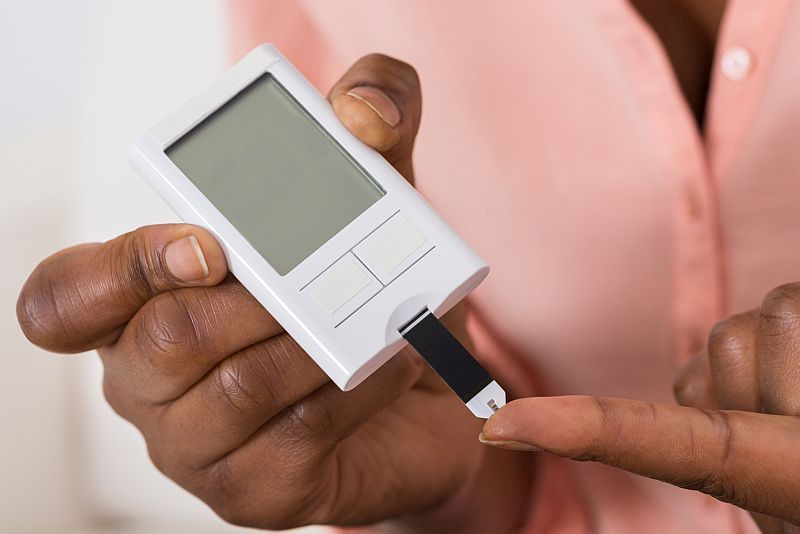
When you eat and how often you eat can make a big impact on your weight and insulin needs if you have type 2 diabetes, new research suggests.
The study found that people who ate three meals a day instead of six smaller meals, and moved the timing of those meals to earlier in the day, needed less insulin, improved their blood sugar and lost more than 10 pounds to boot.
"Shifting calories and carbs to the early hours of the day and less eating occasions is an effective strategy for the achievement of better diabetes control and outcomes with less total daily insulin dose," said study author Dr. Daniela Jakubowicz. She is a professor of medicine from Tel Aviv University, in Israel.
Jakubowicz said a traditional diet recommended for type 2 diabetes has been to eat six small meals distributed evenly throughout the day.
But this type of eating plan hasn't been effective for blood sugar control and leads to the need for more insulin, and weight gain, she said.
Jakubowicz said this becomes "a vicious cycle, with continuous weight gain, increased blood sugar and progressive increases in insulin doses."
The study included 28 people with type 2 diabetes who were taking insulin, with an average body mass index in the obese category. The average age was between 68 and 69.
Half of the group was randomly assigned to three meals a day (3M diet), and the other half to six meals a day (6M diet).
The composition of the meals was consistent: 35% fat, 25% protein and 40% carbohydrates. What differed was the calories and the timing of the meals.
The 3M diet included a large breakfast of 700 calories, a medium lunch with 600 calories and a small dinner of just 200 calories, according to the study. The 6M diet included breakfast, lunch and dinner and three snacks, all with fairly uniform calorie amounts.
Study volunteers were asked to eat breakfast before 9:30 a.m., lunch between noon and 3 p.m., and dinner between 6 p.m. and 8 p.m. The people in the 6M diet also had a snack at 11 a.m., 5 p.m. and 10 p.m.
Those on the 6M diet didn't see any weight loss or improvement in their blood sugar levels, the findings showed.
Meanwhile, the folks on the 3M diet lost nearly 12 pounds and significantly improved their blood sugar levels. In fact, they improved so much that people were able to reduce their need for insulin.
Jakubowicz thinks these improvements occurred because those on the 3M diet were eating to their biological clock. The body is "optimized for eating in the early hours of the day and for fasting and sleeping in the evening and night," she said. A slice of bread eaten in the evening is more fattening and leads to higher blood sugar than a slice of bread eaten in the morning, she added.
Jakubowicz said she thinks the 3M diet would also be helpful for people with type 1 diabetes and those with type 2 who don't require insulin to manage their disease.
Dr. Minisha Sood, an endocrinologist with Lenox Hill Hospital in New York City, said that the improvement in blood sugar control was equivalent to what might be seen from taking diabetes medication.
"More awareness should be raised around the power of lifestyle change in persons with diabetes in general," she said. "Though this study includes only 28 participants, this data is a powerful example of what can be accomplished with front-loading calories and avoiding large meals and excess calories later in the day."
Registered dietician Maureen Franklin, from Upstate University Hospital in Syracuse, N.Y., isn't convinced that the exact timing of meals plays as much of a role in blood sugar control as making sure your carbohydrate intake is consistent and that you're eating a balance of foods, such as protein and carbohydrates.
Franklin said it's also important not to focus so much on the clock that you start eating when you're not hungry. "Ask yourself, 'Am I really hungry?' before you eat. Sometimes, the reason we eat is more a psychological issue."
It's really important for people with diabetes to keep track of what they're eating, she added. "Keep a food diary for a week, including what time you're eating," Franklin suggested. "You need to know what you're actually doing before you can make a change."
The findings were published in the December issue of Diabetes Care.
Sources: Daniela Jakubowicz, M.D., professor of medicine, Tel Aviv University, Israel; Minisha Sood, M.D., endocrinologist, Lenox Hill Hospital, New York City; Maureen Franklin, R.D., Upstate University Hospital, Syracuse, N.Y.; December 2019, Diabetes Care.







0 Comments